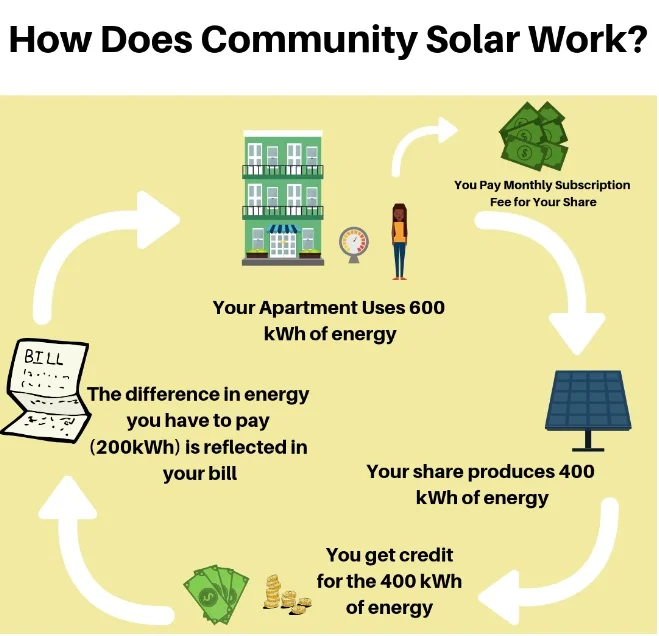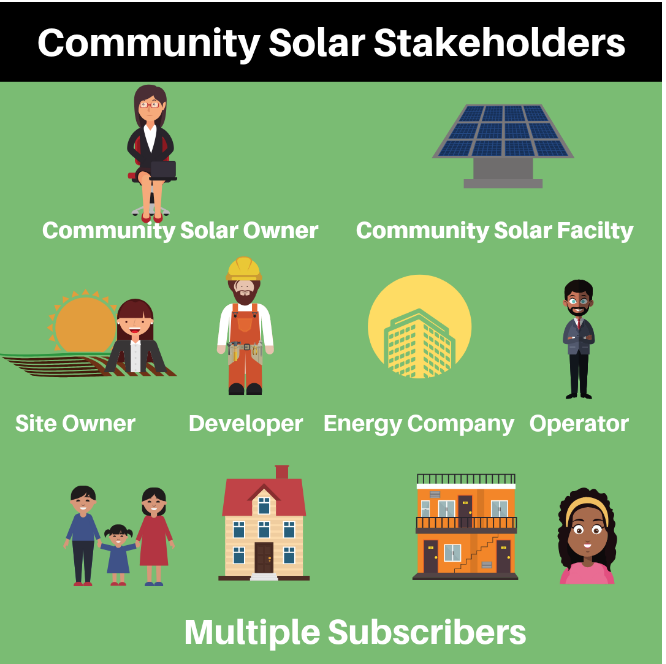Is Community Solar in Jersey City Possible?: Updates on the State’s Community Solar Initiative
/Since our last blog post there have been several Community Solar updates at the state level. In this post we’ll explore what that means for Jersey City and the amazing potential of this program for its residents. If you haven’t read that first post, it gives a nice introduction to what we’ll be discussing here. This new Community Solar initiative arguably offers the most benefit for low-moderate income households, particularly renters, and is unmatched by any solar program in recent history for the LMI population. 40% of total state program must service LMI subscribers and in order for a project to be considered an LMI project, 51% of the subscribers must be from LMI households.
For a city of where about 70% of residents rent this could help households save dramatically on monthly costs. New Jersey is 6th in the country for our solar energy use and Jersey City has an opportunity to be a leader for our state through this program.
Princeton Grad Report, “Solar Gardens in the Garden State” from December 2016
Taking a step back, one thing we didn’t explain in our last post is that the New Jersey Board of Public Utilities (BPU) oversees all of the regulated utility initiatives, which includes electricity. This is why the community solar initiative first begins with them. As of, February 19, 2019 the BPU has adopted the new Community Solar initiative. The Application Process has not yet been released. However, a draft can be viewed here.
Below is a graphic on how New Jersey’s Community Solar program will work. As a subscriber to a project, a Jersey City resident would buy a share of a Community Solar Project. The physical Community Solar Project would not have to be in Jersey City, but more about that below. The size of their share would depend on their current energy usage over the passed 12 months. So as in example below, if you subscribe to a project and have a share that produces 400 kWh’s of energy, your energy bill would be credited with that 400 kWh’s of energy. If your apartment uses 600kWh’s of energy, you would only be responsible for the extra 200 kWh’s of energy your share did not produce.
Like we’ve mentioned, the official Application Process has not yet been released, but there has been a tremendous amount of progress so far since Governor Murphy signed the Clean Energy Act on May 23, 2018. The BPU has also outlined some other guidelines for the project. For one, the way in which the energy will be measured is through Virtual Net Metering, which is a smart meter an energy company like PSEG can read from afar. Any residents interested in being subscribers will have to have this net metering installed. You may already be a net metering customer and can call your energy company to find out.
Because of the many moving parts of this initiative, there are many stakeholders in the equation. In the graphic below, we’ve outlined all the potential partners one single project might have.
Community solar facility – the physical equipment, including solar panels, inverters, etc.
Solar community owner – the entity that legally and financially controls the community solar project
Solar community developer – an entity that oversees the construction and often helps the owner secure financing to construct the facility
Solar community operator - the person or entity responsible for the day to day operation of the solar array. Often it is the owner of the solar project.
Community solar site owner - owns land or building where the solar facility is situated.
Solar community subscriber – any person or entity that participates in the community solar project by through purchase or payment of a portion of the energy produced from the solar system Minimum 10 Maximum 250 per 1 MW
The final piece of the new Community Solar Program to understand is that subscribers could subscribe to a project where the actual location of the solar panels would not be in Jersey City. As long as the Community Solar Facility services the same grid and utility company, a subscriber could subscribe to that Community Solar Project.
We think Jersey City should still strive to have a community solar project within the city to support local solar business. There are many opportunities to locate a Community Solar Facility that could service LMI household in Jersey City. But what do you think? Drop us a line at sustainablejc@gmail.com to give us your thoughts.
Warm Regards,
The Community Solar Team
(Patti, Lindsey, & Gioia)







